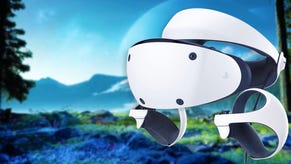Saturday Soapbox: Are Games Racist, Sexist - Or Just Bad?
The medium must earn the right not to be regarded with suspicion.
In the past couple of weeks, the launches of two major video games have once more been marred by a controversy that just won't leave our medium alone: they have had accusations of racism and sexism levelled at them. The incidents have led righteous observers to claim that the video games business is institutionally bigoted.
I'm not here to argue for or against that point. I certainly think it's got enough merit that it needs to be taken seriously, and that the burden of proof lies not with the accusers, but the accused. Why? Because when it comes to portraying human beings, video games - not all of them, but most of them, including many really great ones - are humiliatingly bad.
The incidents I'm referring to involve the two biggest-selling games of the moment, Dead Island and Deus Ex: Human Revolution. You're probably familiar with the discovery, in a line of code of an unfinished version of Dead Island, that one of its female characters' skills was once dubbed "Feminist Whore". This sparked a wave of discussion of sexism in video games, as well as an apology from Polish developer Techland.
It's an unpleasant turn of phrase to be sure, and a shameful mistake - but I don't see a reason to take it as evidence of deep-seated misogyny across the board at Techland, let alone a "naked, bald-faced, slavering hatred of women," as Arinn Dembo put it on Gamasutra.
It's all about context. I shudder to think of how it would look if some of the pitch-black, boundary-crossing humour in Eurogamer's internal emails or chat logs were made public (much of the worst of it perpetrated by one Ellie Gibson). But I know there's not a bigot among us.
"Lazy characterisation, rampant stereotyping and a lack of human empathy leave gaming defenceless and exposed when charges of bigotry are laid against it."
The fact that our offices are overwhelmingly male does distort our culture and cause its share of problems, of course, and I would imagine the same is true of Techland. But even that doesn't explain why the exposure of one man's nastiness should trigger an examination of the sexual politics of an entire industry - and a justified one at that.
Like I said, it's all about context. And the context for those two words is decades of sexualised and - crucially - shallow portrayals of female characters in games.
There are always exceptions, and you can list a few examples of female leads who aren't sexual objects - like Beyond Good & Evil's Jade - or even of overtly sexualised ladies who transcend stereotyping through the inherent strength of their character design, like Lara Croft. Lara has an identifiable personality and background; she is, even in her cartoonish way, a fleshed-out human being. Can you really say the same of Dead Island's "feminist", Purna, the bodyguard in a ripped cocktail dress who's "hired not just for her skills but her looks"?
I'd argue that what really sets Jade and Lara apart is simply that they're good characters: memorable, recognisably human, more to them than meets the eye. Characters like that are all too rare in games, male or female. Men are strong; women are sexy. It's lazy characterisation, rampant stereotyping and a lack of human empathy - on an industry-wide scale - that leaves gaming defenceless and exposed when charges of bigotry are laid against it.
That's painfully evident in the second, less widely discussed, but to my mind much more troubling case of recent weeks: racism in Deus Ex: Human Revolution.


-3-31-23-screenshot.png?width=291&height=164&fit=crop&quality=80&format=jpg&auto=webp)





